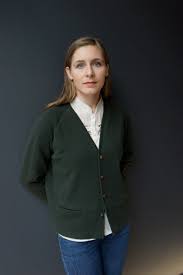Eleanor Catton [1985-0] New Zealander    
Rank: 102
Author
Eleanor Catton MNZM is a Canadian-born New Zealand author. Her second novel, The Luminaries, won the 2013 Man Booker Prize. In January 2015, she created a short-lived media storm in New Zealand when she made comments in an interview in India in which she was critical of "neo-liberal, profit-obsessed, very shallow, very money-hungry politicians who do not care about culture." Beauty, Education, Experience, Failure, Poetry |  |